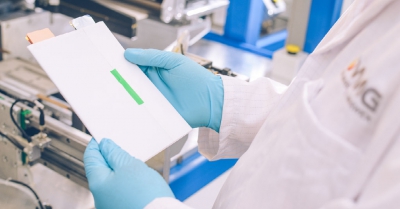A consortium of seven UK-based organisations including Midlands-based UKBIC and the Warwick Manufacturing Group has agreed to develop world-leading prototype solid-state battery technology, targeting automotive applications.
Solid-state batteries offer significant potential advantages over conventional lithium-ion batteries and could be transformational in meeting the UK’s net zero commitments through the electrification of transport.
The successful outcome of the collaboration would be to harness and industrialise UK academic capability to produce cells using highly scalable manufacturing techniques that leapfrog the cost-effectiveness and performance achieved elsewhere.
The consortium made up of world-leading organisations in battery research, development and manufacturing also includes:
- Faraday Institution – the UK’s independent institute for electrochemical energy storage research, which has led the consortium’s formation and will lead its development.
- Britishvolt – the UK-based Gigaplant developer.
- E+R (Emerson & Renwick) – a world-leading designer of manufacturing equipment.
- Johnson Matthey – a global leader in sustainable technologies and the UK’s leading battery materials business.
- Oxford University – that leads the Faraday Institution’s solid-state battery project (SOLBAT) and provides the necessary scientific understanding to the consortium.
Minister for Investment Lord Grimstone said:
Collaboration between industry, government and our world-leading academic institutions is putting the UK at the forefront of global efforts to develop innovative automotive technologies, such as solid-state batteries.
It is the work of our internationally-renowned research and development base, like those brought together by this consortium, that will give us the tools needed to forge a strong and sustainable future for the automotive sector and increase our contribution to combatting climate change.
Solid-state batteries (SSBs) offer significant potential advantages over existing lithium-ion battery technologies, including the ability to hold more charge for a given volume (leading to increased electric vehicle (EV) range) and reduced costs of safety management.
The Faraday Institution forecasts that, in 2030, SSBs are likely to take a 7% share of the global consumer electronics battery market and a 4% share of the EV battery market.
Global SSB revenues from sales to EV manufacturers are expected to reach $8 billion by 2030 and then grow rapidly to 2040 and 2050 when the market is expected to become extensive.
However, there are fundamental scientific challenges that need to be addressed before high-power SSBs with commercially relevant performance can be realised.
The Faraday Institution’s SOLBAT project has made considerable progress in addressing these challenges over the last three years.
The construction of the one-of-a-kind facility being developed by the collaboration will enable SSB technology to emerge from UK university laboratories.
It will allow larger cells to be produced using scalable manufacturing techniques that will be improved iteratively through deep investigation of the causes of problems that emerge during manufacture and testing of prototype batteries.
For the latest on our region, subscribe to Midlands Matters, the official newsletter of the Midlands Engine.




